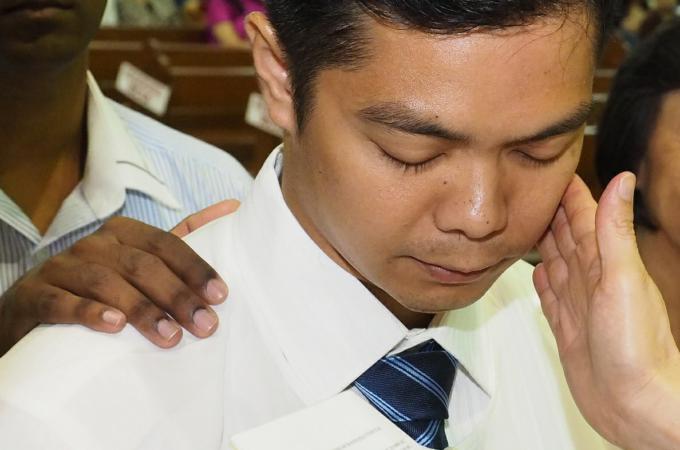Confirmation is a beginning, not an end
If I had a nickel for every single time I've heard someone talk about the sacrament of confirmation as if it were the end of something, I'd be in the money. And now that it's after Easter and parishes everywhere are hosting confirmation Masses, everyone seems to have an opinion.
"After confirmation," I heard one teen say at a church luncheon, "I'm not going to go to church any longer. Mom can't make me."
"I'm so glad I'm done taking the kids to religious ed," said a parent.
Why do we talk about confirmation as if it's something that's completed rather than as an experience that has just begun?
Granted, it's partially adults' fault because in some places confirmation equals graduation. Confirmation prep can sometimes feel like school. Most parishes have classes with a teacher, reading and homework. There are service project internships. There's even an interview process with a priest or a member of the parish staff to make sure you're ready to receive the sacrament.
And, at the very end, you file into the church, wearing your Sunday best, waiting for your name to be called, just like a graduation. Gifts are given, families hug, moms cry.
Just like a graduation, after the lights dim and the families leave the auditorium, the graduates leave, never to return.
At graduations, that's a good thing. Confirmations? Not so much.
While there is, and should be, a celebratory feeling to both ceremonies, I think we've forgotten what they really mean. When you cross the stage or step forward to meet the bishop, you're not just saying you've done the work and deserve the piece of paper you're getting.
You're saying yes to everything else that comes next: to the future, to your dreams, to building a community and a life.
You're saying yes to a life that involves engagement with your faith and community, in an active, enthusiastic and exciting way. A graduation, or a confirmation, is not just an end, but a beginning.
Your life doesn't stop at graduation. It continues, and you use what you learned in school to help you with your future job, your family life and your dreams.
Confirmation is saying yes to faith, to the future and being part of the church. It's a statement not that you're released from going to Mass every week, but that you're willing, ready and able to engage further in your faith -- to dive into service, to learn all of the things they don't teach you in religious education and to explore God's call at a truly adult level, to take ownership of your faith, just like you take ownership of your life at graduation.
This kind of graduation is all about looking out for people, for your friends and for the marginalized, for those who know exactly where they're going as well as those who need a little help discovering that for themselves.
Confirmation is not leaving, it's arriving. It's a statement that you want God to walk with you wherever you may go. It's an acknowledgement that you're not done yet. It's a hope for the future. It's not just an achievement, it's a promise. The promise is that young people aren't leaving God behind when they start looking for new and beautiful horizons, it's that they're bringing him along.
So, this spring, when you face the ceremonies that will take you from one stage in life to the next, remember that you're not done. Remember that the best is yet to come. Don't say no to that.
- Karen Osborne is a columnist for Catholic News Service



















